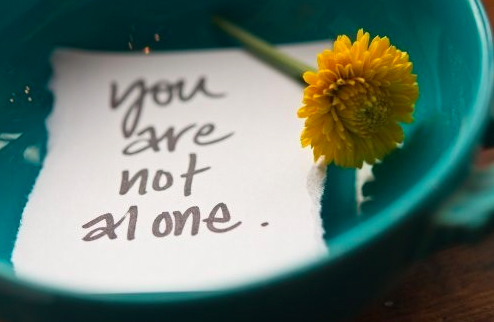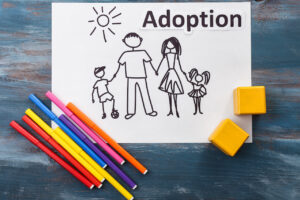You are not alone

According to Resolve (the National Infertility Association of America), infertility impacts 1 in 8 couples of reproductive age, which encompasses those who have trouble getting pregnant or sustaining a pregnancy. 1 in 8 is someone you know. Infertility can be a very isolating disease to face. I know, because I have been there. I enjoy doing my part of sharing my infertility journey so that others may feel less alone on their path. In my own life, breaking the silence of infertility has had a major positive impact for me, helping me to deal with and process my own feelings. I thank Conceive Hospital for giving me the platform on which to do so. To me, it shows how deeply they care about their patients and their emotional as well as physical well-being. Kudos to Dr. Pankaj Shrivastav and his team for having that vision.
So why is the infertility journey such a lonely one? What a complex question… Allow me to offer some basic reasons that this is so:
1. For roughly only 10% of couples, being given the diagnosis of infertility is devastating – The day Eric and I were told that we were an infertile couple, my heart sunk low, and my hopes and visions for my future started to vanish. IMMEDIATELY, I felt alone, scared and already like a failure. It is a basic human desire to want to procreate, and to want to “fit in” with your family and friends and enjoy all that having and raising children has to offer. Since we are young, we are told that the greatest day of an individual’s life is the day their first child is born. The beauty, the miracle, the magic, the passing on to a generation and helping create our collective future. What happens to a person when we are told that the door is closed to us – unless we are ready for a strange and lonely journey indeed, fraught with heartache and tears? Unfortunately, none of us are prepared to deal with this moment.
2. We don’t know anyone diagnosed with infertility who went through treatment – It’s still true that infertility is somehow taboo and that support for it is incredibly limited. It’s really hard to find others going through this – especially the ones who tried every route to have a family and none worked out. You see much more about the people who struggled for a while but in the end, wound up with a beautiful healthy child (or two). It’s all over the news and the media, and even in my own friend circle (I normally only find out about others who struggled after someone reads one of my articles here. Why is that? Ding ding ding! Because infertility is taboo and NO ONE wants to talk about it, or freely admit that they had any trouble conceiving. We would prefer to pretend that getting pregnant is an easy endeavor for all of us and that all of our “junk” works just fine, thank you very much).
3. For the infertile, the loss of savings can be overwhelming or impossible – When diagnosed with infertility, if you want to continue the quest of family creation, you better be ready, willing and prepared to fork over a lot of cash – with the possibility that you will be left with only a depleted bank account when you are done. There are no guarantees with infertility. Strangely, despite the fact that infertility is legally classified as a disability, the health insurance companies can somehow get away with providing zero support to us. During Infertility Awareness Week, I think it is important to raise public awareness, support each other, and lobby insurance companies to cover testing and related treatments, and any desired adoption costs and make adoption more accessible to the average person.
4. Going through treatment can be traumatic – As we were going through treatment, we both felt like freaks, lab experiments and guinea pigs – with the hopes that all of this effort, money and time would work to get me pregnant with our first (and possibly only) child. We felt very isolated and a bit desperate with very few people to talk to as we went through this. It was an often frightening experience, both the emotions involved with it, and the treatments themselves, often leaving me in discomfort. At the clinic, everyone in the waiting room looked as sad, desperate and closed off as we did. In this situation, it seems that we all keep to ourselves, tell ourselves little stories about how it will all be worth it in the end, and try to stay focused on the goal… alone.
5. The strain that infertility puts on our marriages – As we were going through treatment, there are awkward moments where we want to blame each other in our darker hours. “Is it YOUR fault we can’t conceive? I told you to stop putting your cell phone in your pocket! Don’t have that second glass of wine! It’s our future after all!” And forget about a satisfying sex life as you are going through this. One of the great stress relievers pretty much is taken off the table. There is no sexiness in infertility and the subsequent treatment or the aftermath. Being the woman, you are often in mild pain after all of the needles, and don’t want anyone else putting one more thing up your whoo-haa. Enough! Leave me and my faulty reproductive parts alone to try to rest and hopefully conceive!
6. There is the feeling of exclusion in society and our inner circles – It is not just the sorrow of not having a family (in my case, with no parents alive, nor my son or daughter to hug). We are reminded every day of being excluded from the basic progression of adult life, while our friends and relatives have their kids and start hanging out with other couples with kids sometimes exclusively and leave us behind – often without even realizing that they are doing it. At this stage of life, almost every woman I know is a mother. Moms like to hang out with other moms. It’s just a fact. They get each other. They share stories and information. They bond. All of their children can’t wait to see each other – which is a another great reason to get together – play dates! Often, we are left off invitations that have to do with children (birthdays, child-related events). I ask you: How can we cross this divide between the fertiles and the infertiles – the parents and the non-parents? Where can we find common ground and understanding?
7. Honoring Mother’s Day and Father’s Day – Not only do I deeply miss my own parents who have passed, but I am unequivocally reminded on that day of my barren womb, and what I went through with failed IVF. I often wish many people a Happy Mother’s Day. Yet it is rare that a loved one says a kind thing to me on that day about how they were thinking of me on Mother’s Day, knowing that I am unable to have a child of my own. Being an “aunt” and a godmother does indeed help with those maternal instincts and feeling of “family,” but it does not make up for the loss of my unborn children.
8. Most don’t recognize the grief that one feels with infertility and miscarriages – A life has been lost before it even came to be born, though two loving individuals gave it their all and then some. How grief inducing and what a loss! I can’t tell you how many hours Eric and I sobbed in each other’s arms alone. I recently learned the term: disenfranchised grief. It is easy to offer support and sympathy when one loses a loved one that we have all met and come to know. But what about when one loses someone that never came into existence in the first place – someone that hasn’t been born? Where do those people turn to grieve or find support and heal? Can our feelings be validated, seen and heard too? Where are the cards of sympathy for this kind of grief?
9. There are “silencers” out there who want us to stop talking about it – Time and time again, when the topic of infertility comes up, the subject is changed to more pleasant topics – happier ones that are easier and more comfortable to talk about. Several times, I have even been asked to stop talking about it all together. “Stop saying that word! It’s sad and depressing.” That’s right. It is sad and depressing. And we need to heal, be seen and heard and be treated with kindness and sensitivity. Being “silenced“ diminishes and invalidates our pain and feelings of loss, and we struggle with feeling ashamed. Infertility is a disease that afflicts us – not something to feel ashamed of and hidden away in a closet.
10. Society and the media cheers on parenthood – Infertility does not “go away.” After unsuccessful treatment, many of us are left to try to find a new purpose for our lives, with little support. What about those of us who are not parents thus having a well-defined life path laid out before us? It can feel isolating to live in a world that heralds babies and parents, as well as successful IVF treatments.
During Infertility Awareness Week, I want to gently remind you that you are not alone. Here at Slow Swimmers & Fried Eggs, we DO understand what you are going through, and we offer free support to anyone in need. We advocate for increased access to all family building options. And we also support reducing the stigma of the disease through public education. Please join us in being a supportive member of our community. Remember, listening is an act of love. Let’s help one another feel less alone.
Warm regards,
Cathy



